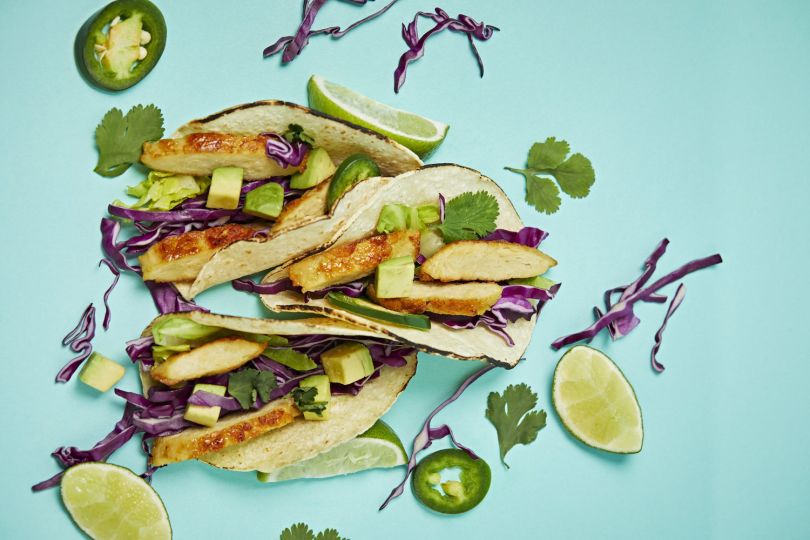
As the number of humans in the world continues to climb, the question as to how we’ll be able to keep everyone fed becomes more imperative by the day. As the global demand for meat is expected to nearly double by the year 2050, a Berkeley company predicts that the world’s current resources will be strained to keep up. Developing a method to keep both the environment and Earth’s living inhabitants happy, UPSIDE Foods secured new capital to bring cultivated meats to customers across the country.
The company uses livestock animal cells to grow cultivated meats. By mimicking the conditions of the animal’s body and providing the cells with the nutrients they need to multiply, the company ends up with real meat that is then harvested and cooked. The entire process takes about two to three weeks, according to Uma Valeti, UPSIDE’s CEO. While these products aren’t vegan, vegetarian or plant-based, they still provide a more sustainable alternative to livestock farming in the long run.
“UPSIDE Foods can focus its caloric inputs on producing just the meat that people love — as opposed to growing inedible parts of the animal, [like] bones,” Valeti told Built In via email. “As a result, cultivated meat is expected to be more resource-efficient, which will enable our food system to supply skyrocketing demand for meat. This also means preserving our precious natural resources, like land and water, and emitting fewer greenhouse gasses.”
This method of producing meat will also contribute to animal welfare since it doesn’t rely on slaughter, Valeti mentioned. Additionally, cultivated meat is expected to reduce the risk of contamination by harmful bacteria since it’s grown in a clean and controlled environment.

UPSIDE is one of the latest additions to the Bay Area’s unicorn club. The company announced Thursday the close of a $400 million Series C funding round co-led by Temasek and the Abu Dhabi Growth Fund, bringing UPSIDE’s valuation to over $1 billion. The round follows the company’s Series B back in 2020 and brings the company’s total venture funding raised to $608 million.
The fresh capital will enable UPSIDE to start construction on a production facility for its cultivated meat, poultry and seafood products. With an initial focus on chicken, UPSIDE will be able to produce tens of millions of pounds of cultivated meat products a year in its new facility. The company is working toward the commercialization of its product and plans to make it available to consumers in the U.S. later this year.
UPSIDE was an initial player in the cultivated meat space. When the company launched in 2015 as Memphis Meats, it was the only one of its kind, according to Valeti. Today, dozens of companies operate within the cultivated meat sector, and the industry is growing at a rapid clip. Barclays predicts that newcomers in the alternative meat space could come to represent about 10 percent of the $1.4 trillion global meat market over the next decade. The market for cultivated meat, in particular, could reach $25 billion by 2030, according to findings by McKinsey.
UPSIDE’s investment plans for this latest round extend to deepening consumer education on cultivated meats and investing in R&D for its next generation of products. The company is also expanding its team of over 170 people and is currently hiring across R&D, tech ops, quality, manufacturing, people and other departments.
“In a world of increasingly scarce resources and growing global demand, UPSIDE Foods believes that people should be able to continue to enjoy and expand upon their most cherished culinary traditions,” Valeti said. “We believe that we can supplement the existing meat supply and meet the growing demand for meat without more animals.”



